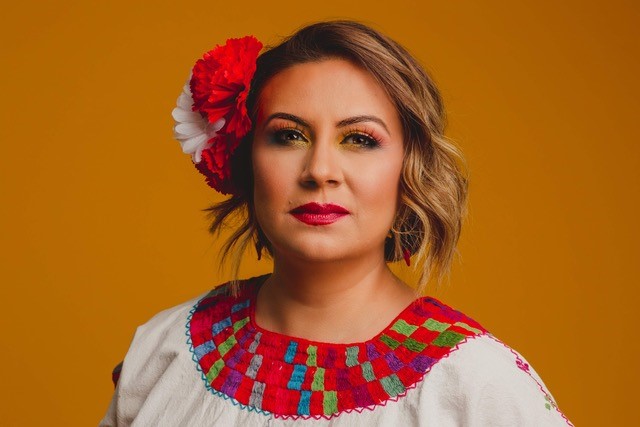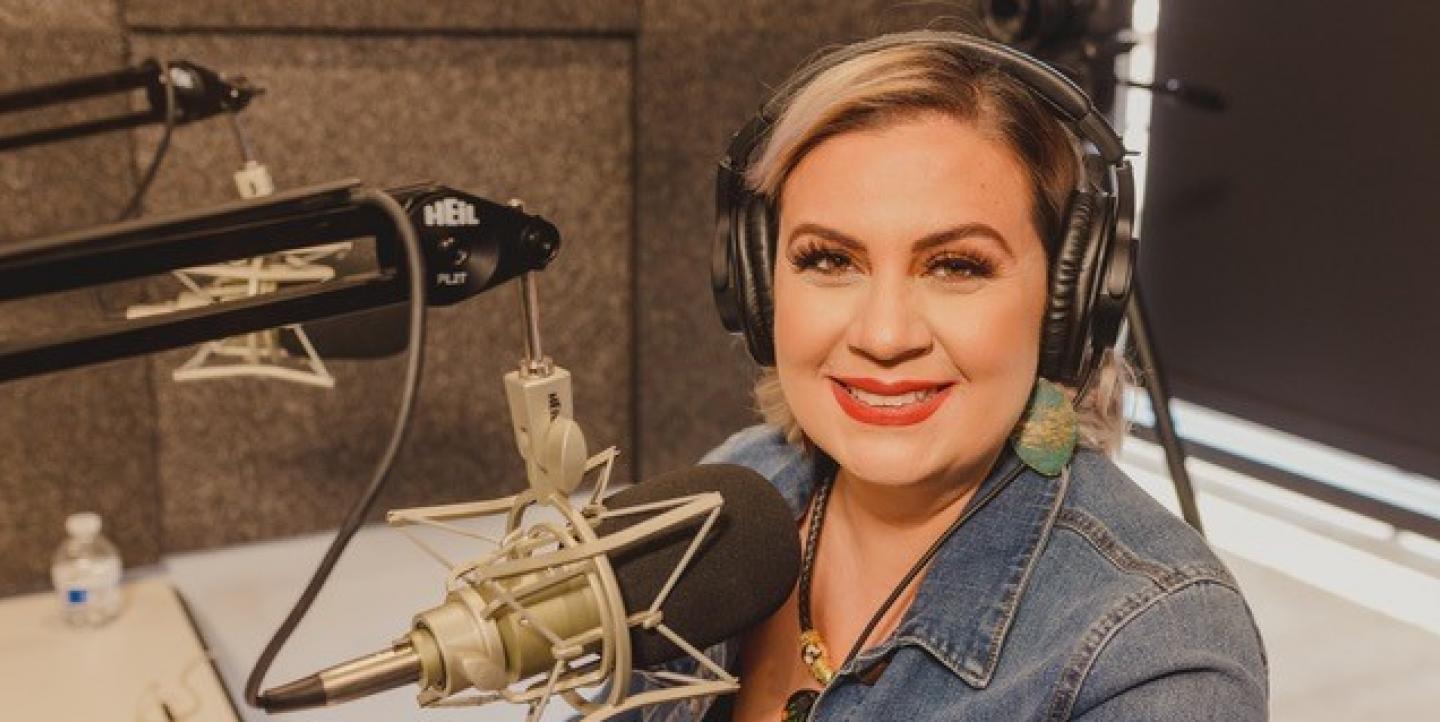After immigrating to the U.S. in 2006 on a spouse visa, Arizona-based journalist Maritza L. Félix fought for more than a decade to prove that her skills as a reporter meant that she deserved permanent residency in the country.
“Coming to the U.S. legally is really hard, but as a journalist the only thing that I have is my byline and I needed to protect that,” said Félix. “I really made sure that I did things the right way, but it is a very long, painful and very expensive process. It took me more than a decade to prove that I deserved to be here.”
Despite the challenges she faced along the way, Félix’s dedication to changing the way immigration is covered landed her several awards, including five Emmys for best investigative reporter and producer. “When I was trying to self-sponsor for my green card, I became an award counter because I needed to have so many awards to prove to the U.S. that I was worthy of being here. Now, I don't chase any awards. It's like if I get one, that's fine,” she said.
After receiving her work permit, Félix joined La Prensa Hispana as its chief of information. Throughout her career, she has also produced content for Telemundo Arizona, The Hechinger Report, The Nation, Yes Magazine and Slate. Currently, Félix is a John S. Knight Community Impact Fellow at Stanford, an opportunity she found through IJNet.
Last year, she launched Conecta Arizona, a cross-border Spanish-language initiative to combat the spread of misinformation through messenger apps, and to provide reliable information about the pandemic and vaccines.
Below, Félix shares insights about Conecta Arizona, reporting at the border, and notable career accomplishments. She also offers advice for fellow Mexican journalists who may also be interested in reporting in the U.S.
IJNet: What inspired you to create Conecta Arizona, and why was this an important project for you to take on?
Félix: I was googling stuff, trying to get more research in Spanish about the pandemic and I couldn't find anything on it. So I started translating things on my social media and I got a huge response from people asking questions about the pandemic, the coronavirus, vaccines, and border restrictions.
Then I was getting all these links from Facebook and these names from my groups through WhatsApp, and I’m like “oh my god, all this misinformation is getting spread through these messenger apps.” The need to have verified information about the pandemic in Spanish in Arizona and Sonora, [Mexico] — because we're connected with Mexico — inspired Conecta Arizona.
[Read more: Making it as a foreign correspondent: Q&A with Ann M. Simmons]
What major differences did you notice between reporting in the U.S. and back in Mexico?
In the U.S., I feel safer — that's one of the biggest things. Reporting in Mexico is like reporting in a war zone, it is really dangerous. I admire my colleagues over there because everyday they're risking their lives to do their jobs.
Even though I struggle to fight for more opportunities in Spanish in the U.S., I think we have more privilege on this side of the border than in Mexico. In Mexico, there is so much talent, but there is a lack of opportunities and resources for journalists.

What is the most rewarding story you reported?
I have been following families since 2014. I'm one of those reporters that finds a story and follows up forever. I think immigration is not just about reporting about the day they got to the U.S., or about the country they are going to, but actually talking about the next day, the next six months, and the year after.
In March, I published a story in The Nation about a family that got separated at the border in 2018. I flew to Tennessee to meet them, and I've been following up with them. They just recently had a baby.
I think these stories about those kids that are coming to look for a better life are the ones that I like to tell the most. Even though I have had the opportunity to cover Trump, Obama and the Mexican presidency, I think people stories, human interest stories, are the ones that make my heart happy.
[Read more: How Peru’s Salud con Lupa mapped the “Vacunagate” network]
What distinguishes reporting at the border from reporting in other parts of the U.S.?
The border is its own entity. It is completely different from the rest of the U.S. You need to know the border, and you need to leave the border in order to report on it. Immigration has been my beat for more than 10 years, and I think we need to start changing the narratives. We always talk about the immigrants as the poor people who are coming to the U.S. looking for the American dream, but immigration has so many faces.
We need to stop talking about the border like the wall and the violence. We need to start talking more about the bridges that we have between communities and how, regardless of border restrictions, violence and politics, we're still connected and we're still flourishing.
What advice would you give Mexican reporters who wish to report in the U.S.?
They need to be mindful that it's going to be a long, painful and very expensive process, but it can be done and I'm proof of that. Despite all the abuses and all the things that I suffered from being on a work visa, I could self-sponsor myself for the green card and that was life changing.
The other thing is to value your work. Sometimes we have this imposter syndrome that is talking to us all the time and telling us “you're not good enough and there is somebody else who's going to do a better job,” and that is not the case. We are unique and we have our own experiences. We know our communities. We have fought to be where we are right now.
All images courtesy of Maritza L. Félix.


